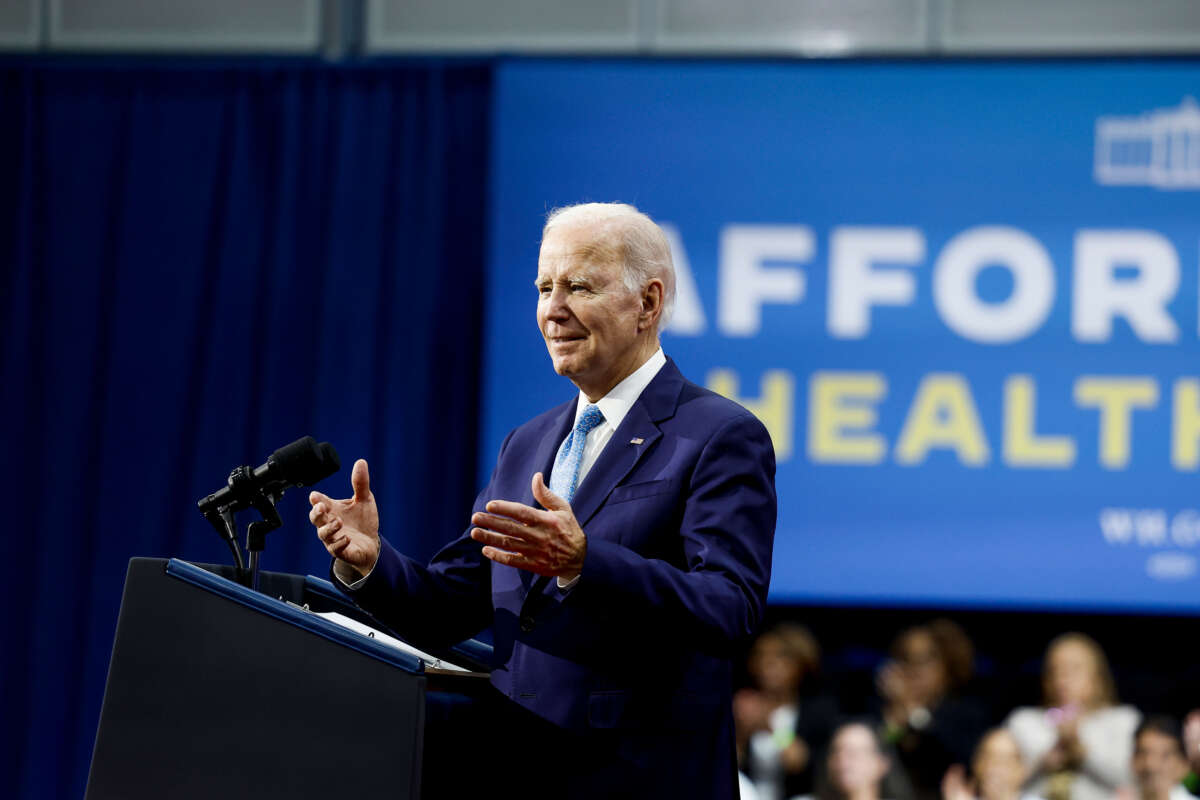Last week, the Biden administration announced the finalization of a rule expanding health care options for tens of thousands of people currently protected under the Deferred Action for Childhood Arrivals (DACA) program who are uninsured.
DACA recipients, who are sometimes called Dreamers, are individuals who were born outside of the United States but were brought to the country as children and have lived here ever since. The program was initially created by the Obama administration in 2012 to protect these individuals from being deported.
Although they’ve lived in the U.S. for nearly their entire lives (and have paid federal taxes from their incomes), DACA recipients with low incomes have not been allowed to apply to federal health programs designed just for U.S. citizens, including the Affordable Care Act’s (ACA) marketplace for insurance and the Basic Health Program, an ACA program that allows states to expand access to individuals with lower incomes who are not otherwise qualified to be part of the marketplace.
The new rule changes those restrictions to allow around 100,000 individuals covered by DACA to enroll in those two programs.
“DACA recipients are currently three times more likely to be uninsured than the general U.S. population, and individuals without health insurance are less likely to receive preventative or routine health screenings,” said Health and Human Services Secretary Xavier Becerra. “They delay necessary medical care, and they incur higher costs and debts when they do finally see care.”
The new expansion announced by the administration “will improve [DACA recipients’] health and will strengthen the health and well-being of our nation,” Becerra added.
The total dollar amount of the new rule will be minimal in relation to the federal government’s total yearly health care spending. It will cost around $5,000 for each eligible person, or roughly $1 billion in total. The U.S. government currently spends around $1.6 trillion on health care costs per year.
Most Dreamers receive health care through their employer, but around 190,000 do not, and are ineligible to apply for federal health programs. Notably, this new rule from the Biden administration will still leave tens of thousands of individuals covered by DACA without insurance options, and will not allow any individual covered by the program to apply for Medicaid.
The new rule will only become effective on November 1, coinciding with the annual open enrollment period.
Still, some immigrants’ rights leaders are heralding the move as a step in the right direction, including the National Partnership for New Americans (NPNA), a coalition of 70 immigrant and refugee rights organizations.
“We are thrilled by the news that health care will now be made available to DACA recipients, who are integral members of our communities and deserving of living full healthy lives,” said Nicole Melaku, Executive Director of NPNA.
The new rule could also have an impact on the 2024 presidential election. President Joe Biden is currently struggling in the polls with Latinx voters — his approval rating among Hispanic Americans right now, according to The Economist/YouGov polling data, is about 20 points lower than it was in the first few months of his administration. Changing federal rules to give DACA recipients better health care options could improve Biden’s numbers, possibly prompting voters whose family members are positively affected by the changes to back the incumbent president for a second term.
The Trump campaign responded to the announcement of the rule by parroting far right talking points about supposed “handouts” for immigrants. The commentary seems to indicate that the rule will be discussed during the election season.
U.S. voters overall are largely dismissive of such racist rhetoric, including when it comes to current asylum seekers crossing the U.S.-Mexico border. Indeed, recent polling from Data for Progress shows that voters respond more favorably to humane immigration policies that uphold immigrants’ rights (59 percent) than they do to proposals like mass deportations (34 percent), which former President Donald Trump has expressed imposing if he wins in November.
We have 4 days to raise $37,000 — we’re counting on your support!
For those who care about justice, liberation and even the very survival of our species, we must remember our power to take action.
We won’t pretend it’s the only thing you can or should do, but one small step is to pitch in to support Truthout — as one of the last remaining truly independent, nonprofit, reader-funded news platforms, your gift will help keep the facts flowing freely.
